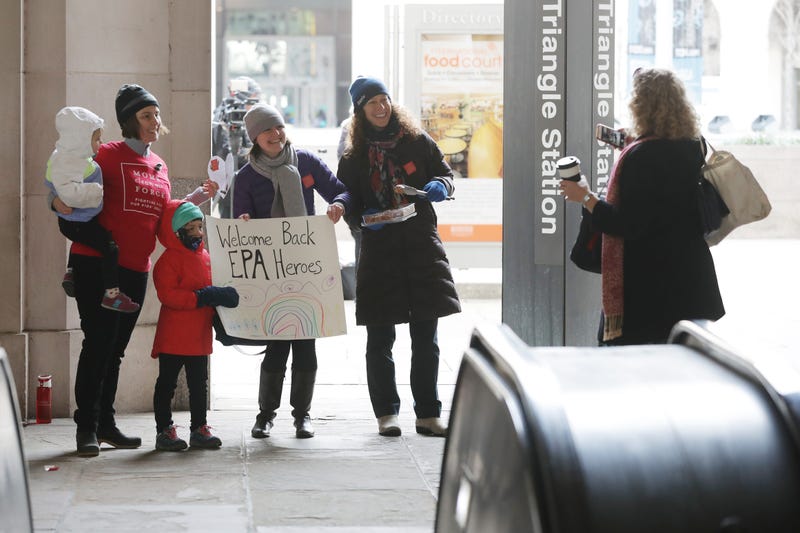
There’s a time and place for both.
For the million-plus MCAF members nationwide, the bully on the playground right now is the Environmental Protection Agency (EPA) and its rollbacks of decades of rules.
These mothers against pollution arm themselves with information and aim to influence pro-environmental policy with it.
“We do have a voice, and a parent’s voice is a very strong voice,” said Mollie Michel, a Pennsylvania field organizer and Philadelphia member of MCAF, “because we’re talking about our kids and their health and safety and it becomes very hard for a legislator to look you in the eye and say, ‘Woah, your child’s health doesn’t matter.’ ”
Philadelphia ranks fourth on the Asthma and Allergy Foundation of America’s most recent list of the “Most Challenging Places to Live with Asthma.” A study published last month suggests more than one in 10 childhood asthma cases each year may be linked to traffic pollution.
Michel noted that air pollution in the City of Brotherly Love impacts kids with compromised lungs significantly, causing hospitalizations and missed school, missed work for parents, and anxiety in the whole family when the wheezing starts.
“In Philadelphia, we have a huge smog problem and a huge problem with ground-level ozone and air quality alerts and poor air quality for our kids,” Michel explained. “So we partner with various organizations and with City Council members and the mayor’s Office of Sustainability to talk more about what we can do to decrease the air pollution in the city and help our kids live healthier lives.”
The organization has grown through helping parents help themselves with a community pollution problem.
“We work really hard to educate them to advocate for themselves,” Michel added, “and to make sure that their communities are as safe as they can be. So whether it’s a pipeline or fracking around Pittsburgh, or whether it’s diesel pollution from trucks here in Philadelphia, we really work to help parents amplify their own message with legislators, with other organizations, with businesses.”
Michel finds that empowering parents who have never interacted with their lawmakers leads to empowered kids.
“My 9-year-old is the little girl who will walk up to an idling truck in our neighborhood and tell the driver to shut the engine off,” Michel related. “We’re teaching lawmakers, but we’re teaching our kids too, the importance of advocacy and speaking up for their rights and their health.”

